METOPROLOL - ORAL
PHONETIC PRONUNCIATION: (MET-oh-PROE-lol)
COMMON BRAND NAME(S): Lopressor
GENERIC NAME(S): metoprolol tartrate

Medically reviewed by Matt Sommers, PharmD. Last updated on September 01, 2023.
Uses
USES: Metoprolol is used with or without other medications to treat high blood pressure (hypertension). Lowering high blood pressure helps prevent strokes, heart attacks, and kidney problems. This medication is also used to treat chest pain (angina) and to improve survival after a heart attack. Metoprolol belongs to a class of drugs known as beta blockers. It works by blocking the action of certain natural chemicals in your body, such as epinephrine, on the heart and blood vessels. This effect lowers the heart rate, blood pressure, and strain on the heart.
How to use METOPROLOL - ORAL
HOW TO USE: See also Warning section. Take this medication by mouth, with or right after a meal, as directed by your doctor, usually 1-3 times a day. The dosage is based on your medical condition and response to treatment. To reduce your risk of side effects, your doctor may direct you to start this medication at a low dose and gradually increase your dose. Follow your doctor's instructions carefully. Use this medication regularly to get the most benefit from it. To help you remember, take it at the same time(s) each day. Do not suddenly stop taking this medication without consulting your doctor. Your condition may become worse when the drug is suddenly stopped. For the treatment of high blood pressure, it may take several weeks before you get the full benefit of this drug. It is important to continue taking this medication even if you feel well. Most people with high blood pressure do not feel sick. To prevent chest pain, a second heart attack, or migraine headaches, it is very important to take this medication regularly as prescribed. This drug should not be used to treat chest pain or migraines when they occur. Use other medications to relieve sudden attacks as directed by your doctor (for example, nitroglycerin tablets placed under the tongue for chest pain, "triptan" drugs such as sumatriptan for migraines). Consult your doctor or pharmacist for details. Tell your doctor if your condition does not improve or if it worsens (for example, if your routine blood pressure readings remain high or increase, if your chest pain or migraines occur more often).
Side Effects
Precautions
Interactions
Overdose
Images
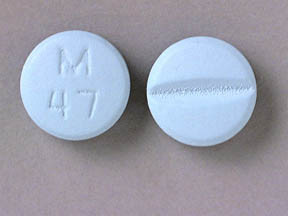
- color
- light blue
- shape
- round
- imprint
- M 47

- color
- light blue
- shape
- round
- imprint
- M 47
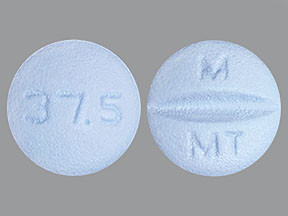
- color
- light blue
- shape
- round
- imprint
- M MT, 37.5
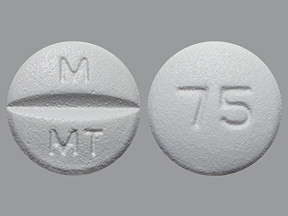
- color
- white
- shape
- round
- imprint
- M MT, 75
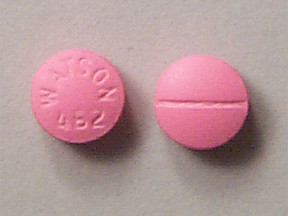
- color
- pink
- shape
- round
- imprint
- WATSON 462
Reviews
Faq for METOPROLOL - ORAL
Metoprolol is used to treat high blood pressure, angina (chest pain), and heart failure. It may also be prescribed to prevent future heart attacks.
Metoprolol belongs to a class of medications called beta-blockers. It works by blocking the effect of certain natural chemicals in the body, such as adrenaline, which can increase heart rate and blood pressure. By doing so, it helps to lower blood pressure, reduce chest pain, and improve overall heart function.
Common side effects of Metoprolol include tiredness, dizziness, slow heartbeat, diarrhea, and cold hands or feet. It is important to note that not everyone experiences these side effects, and if they do occur, they usually go away on their own as the body adjusts to the medication.
No, you should not stop taking Metoprolol suddenly without consulting your doctor. Stopping the medication abruptly can lead to withdrawal symptoms, potentially making your condition worse. Your doctor will gradually decrease your dose to safely stop the medication if needed.
Metoprolol may interact with other medications, so it is important to inform your doctor about all the medications you are taking. Some drugs, such as certain antidepressants, calcium channel blockers, and antiarrhythmics, may interact with Metoprolol and affect its effectiveness or increase the risk of side effects.
It is important to consult your doctor if you are pregnant or planning to become pregnant before taking Metoprolol. The medication may be prescribed if the potential benefits outweigh the potential risks. It is generally not recommended to take Metoprolol while breastfeeding, as it can pass into breast milk.
Metoprolol is usually taken orally, with or without food, as directed by your doctor. It is important to take it at the same time(s) every day to maintain a consistent level in your body. Do not crush or chew the extended-release tablets; swallow them whole.
While rare, allergic reactions to Metoprolol can occur. Signs of an allergic reaction may include rash, itching, swelling, severe dizziness, or trouble breathing. Seek immediate medical attention if you experience any of these symptoms after taking Metoprolol.
The time it takes for Metoprolol to start working varies depending on the condition being treated. In general, it may take a few weeks to experience the full benefits. It is important to continue taking the medication as prescribed, even if you start feeling better.
Warning
WARNING: Do not stop taking this medication without consulting your doctor. Some conditions may become worse when you suddenly stop this drug. Some people who have suddenly stopped taking similar drugs have had chest pain, heart attack, and irregular heartbeat. If your doctor decides you should no longer use this drug, he or she may direct you to gradually decrease your dose over 1 to 2 weeks. When gradually stopping this medication, it is recommended that you temporarily limit physical activity to decrease strain on the heart. Get medical help right away if you develop chest pain/tightness/pressure, chest pain spreading to the jaw/neck/arm, unusual sweating, trouble breathing, or fast/irregular heartbeat.
Disclaimer
IMPORTANT: HOW TO USE THIS INFORMATION: This is a summary and does NOT have all possible information about this product. This information does not assure that this product is safe, effective, or appropriate for you. This information is not individual medical advice and does not substitute for the advice of your health care professional. Always ask your health care professional for complete information about this product and your specific health needs.
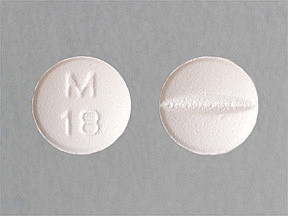
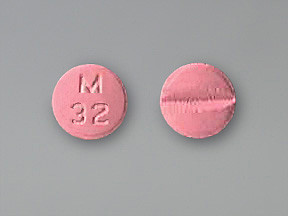
No Reviews Yet